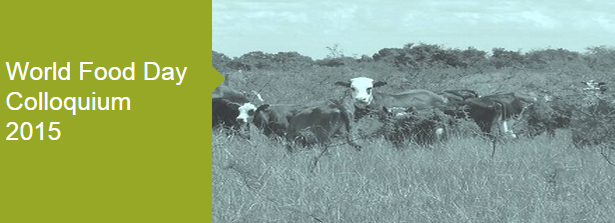
The main focus of this years’ World Food Day colloquium is on grasslands as jeopardized ecosystems due to increasing intensity and competitiveness use of grasslands worldwide. Impacts on e.g. grasslands based animal production systems and on food security will be discussed.
Grasslands are the largest terrestrial ecosystem worldwide, covering a land area of approximately 52.5 million km². Savannas, steppes, and tundras contribute largely to atmospheric carbon sequestration, biodiversity conservation, as well as fresh water filtration and storage. For millennia, their use for pastoral livestock production has sustained livelihoods of millions of people worldwide.
But, as a result of the growing human population and an increasing demand for food and energy, grasslands are more and more at risk. An intensive debate is therefore going on how to use and conserve these ecosystems in the future. Challenges related to the increasing intensity and competitiveness in the use of grasslands, the sedentarization of mobile livestock farmers, their access rights to natural resources, and the need for conserving the multiple ecological functions of grassland ecosystems will have to be addressed. Scientists from different disciplines of the University of Hohenheim are actively involved in grassland research. They will present their perspectives and suggest strategies for a sustainable, future-oriented grassland use.
As a special highlight in the colloquium the “Justus von Liebig Award” will be granted by the foundation fiat panis. Further, the latest Global Hunger Index will be presented at the World Food Day colloquium.
With reference to this years’ thematically focus, the colloquium will be jointly hosted by FSC with the Institute of Animal Production in the Tropics and Subtropics.
- This event has passed.

